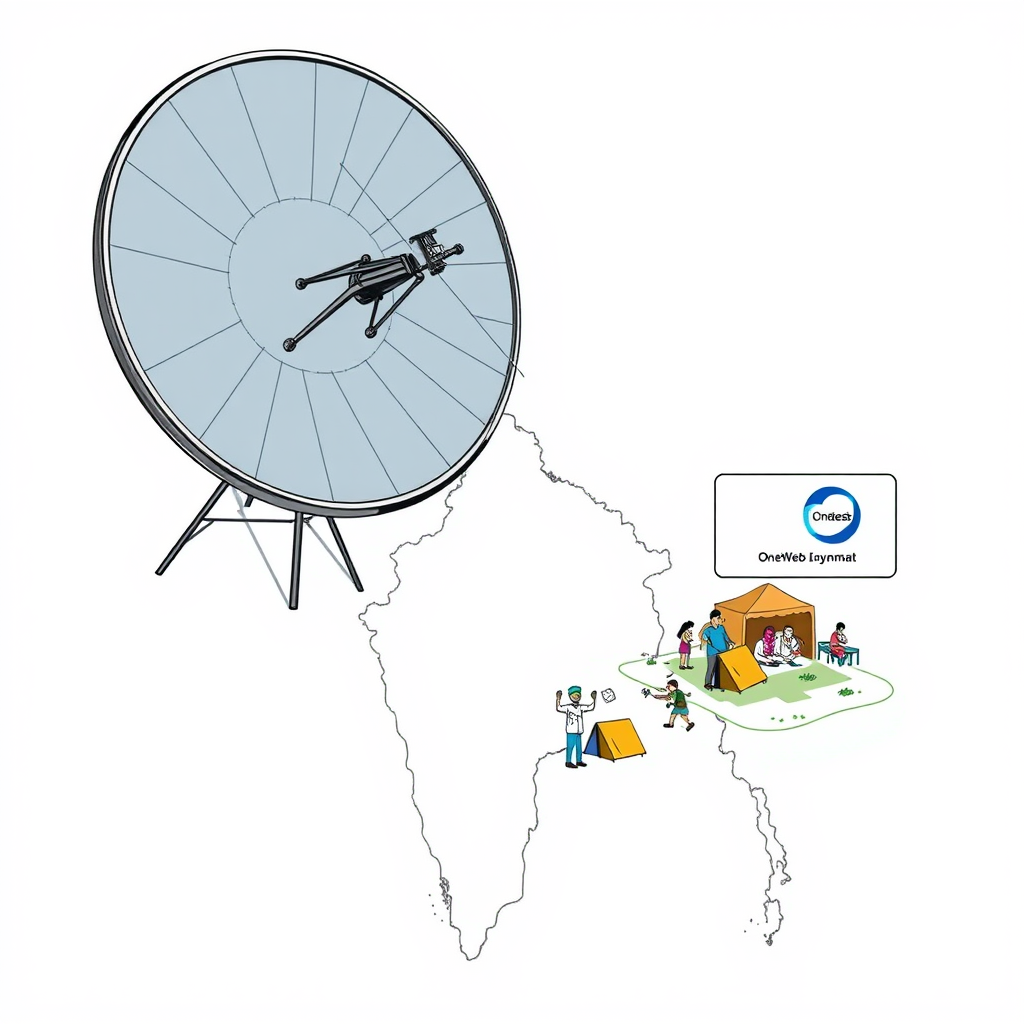India's Satellite Internet Debut: Quake Aid Test

India recently witnessed a practical demonstration of satellite-based internet’s potential during relief operations following a significant earthquake in Myanmar. The event marked the first real-time deployment of this technology within the country, facilitated by OneWeb Eutelsat during “Operation Brahma,” India’s aid mission to the quake-affected regions. A OneWeb terminal was established in Myanmar’s Mandalay, enabling crucial communication between the Indian response team and base operations in New Delhi.
This deployment is particularly noteworthy as India has, until recently, refrained from officially permitting satellite-based internet services within its borders. Companies like Reliance’s Jio, Elon Musk’s Starlink, and OneWeb have been vying for access to the substantial Indian market. OneWeb received a provisional license in November 2023, allowing it to test the technology prior to the earthquake and ultimately provide connectivity within 24 hours of the disaster.
The successful implementation highlights a shift in India’s approach to satellite internet, spurred by a humanitarian need. Nishtha Kapoor, Regional Director of OneWeb Eutelsat, described the experience as “humbling,” emphasizing the technology’s ability to reach areas where traditional infrastructure is lacking.
OneWeb has secured authorizations from IN-SPACe, the Indian government agency regulating space activities, and holds licenses from the telecom department to provide broadband services. Approval for gateways in Gujarat and Tamil Nadu is already in place, poised to deliver high-speed internet across the country. The primary hurdle remaining is the allocation of spectrum by the Telecom department, a necessary step before full commercial rollout can begin.
The situation is complicated by recent developments in the market. Jio and Airtel, previously opposed to Starlink’s entry on technical grounds, have now announced a partnership with the Elon Musk-owned company, potentially signaling a collaborative approach to providing consumer-facing satellite internet. This move suggests a recognition of the demand for widespread connectivity and a willingness to overcome previous objections.
While the Jio-Airtel-Starlink alliance appears poised to target individual consumers, OneWeb is positioning itself as a business-to-business communication network, focusing on secure, encrypted services for remote locations. The company’s constellation of satellites, including those launched by India’s ISRO, demonstrates its commitment to providing connectivity across the country.
The convergence of these developments – OneWeb’s established licenses, the Jio-Airtel-Starlink partnership, and the government’s evolving regulatory stance – suggests a rapidly changing landscape for satellite internet in India. It’s a positive development, promising to bridge the digital divide and enhance connectivity in even the most remote corners of the nation. However, the ultimate success will depend on efficient spectrum allocation and a clear regulatory framework that fosters competition and innovation. The Myanmar operation served as a powerful proof-of-concept, demonstrating the real-world benefits of this technology and accelerating India’s journey towards a digitally connected future.